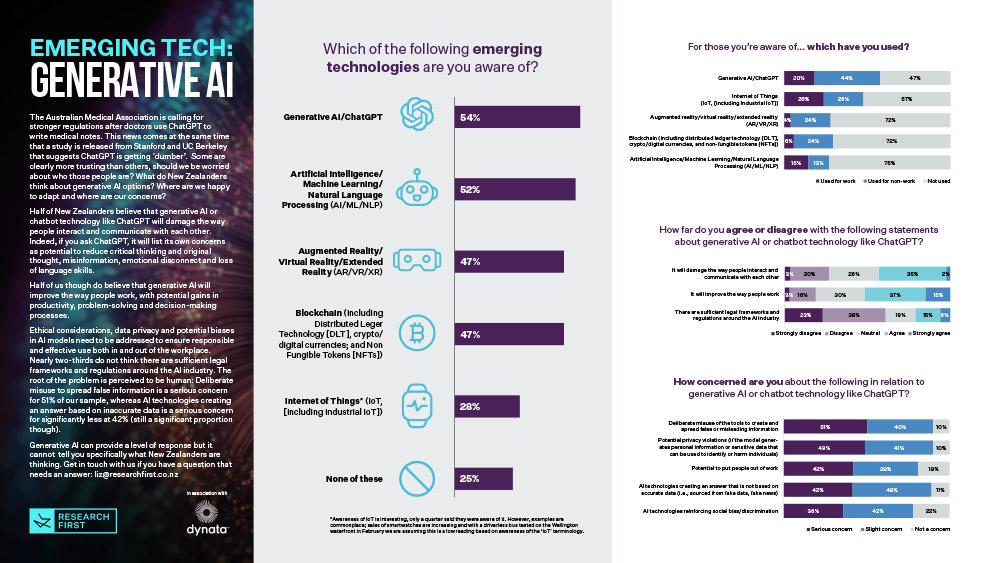Emerging Tech: Generative AI
The Australian Medical Association is calling for stronger regulations after doctors use ChatGPT to write medical notes. This news comes at the same time that a study is released from Stanford and UC Berkeley that suggests ChatGPT is getting ‘dumber’. Some are clearly more trusting than others, should we be worried about who those people are? What do New Zealanders think about generative AI options? Where are we happy to adapt and where are our concerns?
Half of New Zealanders believe that generative AI or chatbot technology like ChatGPT will damage the way people interact and communicate with each other. Indeed, if you ask ChatGPT, it will list its own concerns as potential to reduce critical thinking and original thought, misinformation, emotional disconnect and loss of language skills.
Half of us though do believe that generative AI will improve the way people work, with potential gains in productivity, problem-solving and decision-making processes.
Ethical considerations, data privacy and potential biases in AI models need to be addressed to ensure responsible and effective use both in and out of the workplace. Nearly two-thirds do not think there are sufficient legal frameworks and regulations around the AI industry. The root of the problem is perceived to be human: Deliberate misuse to spread false information is a serious concern for 51% of our sample, whereas AI technologies creating an answer based on inaccurate data is a serious concern for significantly less at 42% (still a significant proportion though).
Generative AI can provide a level of response but it cannot tell you specifically what New Zealanders are thinking. Get in touch with us if you have a question that needs an answer: liz@researchfirst.co.nz



